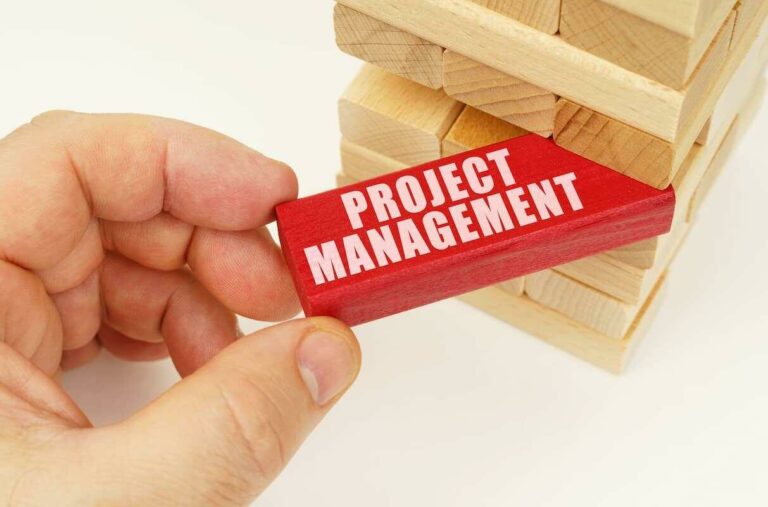SaM Solutions provide effective automation and seamless security for your enterprise software. Organizations use CRM for gathering details of their clientele, decrease the time employees spend on routine tasks, grow their businesses. However, transitioning and retrofitting your current systems to the cloud can prove laborious and expensive.
The costs for such a comprehensive system can be high, especially for small businesses with tight budgets. Another sourcing strategy Wal-Mart uses is implementing efficient communication relationships with the vendor networks; this is necessary to improve the material flow. SCM can also extend to the activities around global trade, such as the management of global suppliers and multinational production processes. See the industry-leading enterprise resource planning (ERP) cloud solution, serving as your integrated management of business processes and applications, to gain resilience and real-time agility, to position yourself for growth. Supply chain management has many moving parts, requiring systems and tools that help streamline processes, improve efficiency and strengthen accuracy. The role of information systems in supply chain management is to help businesses manage supply chains through scheduling, sourcing, supplier management, and data analytics.
Industry Standards for Retail Stores
ERP software for small businesses can help you move beyond spreadsheets and efficiently manage every aspect of your growing company – from sales and customer relationships to financials and operations. Small business ERP tools are typically in the cloud, quick to install, and designed to grow with you. Sometimes described as “the central nervous system of an enterprise,” an ERP software system provides the automation, integration, and intelligence that is essential to efficiently run all day-to-day business operations. Most or all of an organization’s data should reside in the ERP system to provide a single source of truth across the business. Yet today’s ERP systems are anything but basic and have little resemblance to the ERP of decades ago. They are now delivered via the cloud and use the latest technologies – such as artificial intelligence (AI) and machine learning – to provide intelligent automation, greater efficiency, and instant insight across the business.

Join an ecosystem of producers, suppliers, manufacturers, retailers and others creating a smarter, safer and more sustainable food system for all. Find out why 800,000 trading partners trust IBM for partner network connectivity with market-leading AI and blockchain capabilities.
The Effects of Enterprise Resource Planning on Business
Although supply chains have existed for ages, most companies have only recently paid attention to them as a value-add to their operations. For any organization with a complex structure, be it a large corporation, educational institution or government department, proper software is essential. There are different types of enterprise systems that ensure stable operational flow and make the management of assets easier.

Most have heard the term “enterprise system” but do not have a precise idea of how exactly such systems are integrated into organizations and what functions they are designed to perform. In this article, we will tell what exactly the enterprise system is, how it can help businesses, present its major types and their key features. Your SCM system must be flexible enough to mitigate all the impacts that are generated by changes in the supply chain, including changing and varied regulatory requirements.
Explore ERP software
Departments are better able to collaborate and share knowledge; a newly synergized workforce can improve productivity and employee satisfaction as employees are better able to see how each functional group contributes to the mission and vision of the company. Also, menial and manual tasks are eliminated, allowing employees 3 types of enterprise systems to allocate their time to more meaningful work. © All Rights Reserved All ISO publications and materials are protected by copyright and are subject to the user’s acceptance of ISO’s conditions of copyright. Explore the possibility to hire a dedicated R&D team that helps your company to scale product development.
Without ERP, companies tend to operate in silos, with each department using its own disconnected system. An SCM is essential for any business dealing in the processing of raw materials into finished products. Because different companies are responsible for various aspects of the supply chain, this software is commonly used by more than one.
Why is ERP important?
Industry 4.0 SCM also provides a significant advantage over traditional SCM because it enables aligned planning and execution while at the same time delivering substantial cost savings. For instance, companies that operate under a “plan-to-produce” model—in which product production is linked as closely as possible to customer demand—must create an accurate forecast. That involves juggling numerous inputs to ensure that what is produced will meet market demand without exceeding it, avoiding costly overstocks. Intelligent SCM solutions can help you meet customer demand and financial objectives at the same time.
- At the same time, controls over shipping procedures can improve customer service by avoiding costly shortages or periods of inventory oversupply.
- If a manufacturer needs aluminum and can’t get it from one supplier due to a trade policy, that manufacturer must be able to quickly pivot to source the aluminum elsewhere.
- ERP Systems and software support multiple functions across the enterprise, mid-sized, or small businesses, including customizations for your industry.
- When considering why supply chain management is important, it’s worth noting the potential repercussions of an ineffective supply chain.
- The complexity of enterprise software pushes corporations to outsource the development of applications they need to run operations.
- And banks and shareholders require accurate financial records, so they count on reliable data and analysis made possible by the ERP system.
- Men’s grooming product maker Fulton & Roark successfully implemented enterprise resource planning to better track inventory and financial data.
ERP software helps support organizational goals by providing a cross-functional, company-wide communication system. It allows efficient collection, storage, interpretation, and management of information. Helps in managing supplier relationships more effectively, ensuring timely delivery and quality of products.
Digitizing supply chains
Outsourced technology hosting for supply-chain solutions debuted in the late 1990s and has taken root primarily in transportation and collaboration categories. This has progressed from the application service provider (ASP) model from roughly 1998 through 2003 to the on-demand model from approximately 2003 through 2006, to the software as a service (SaaS) model currently in focus today. The supply chain of the future is all about responsiveness and the customer experience― understood and managed within a network rather than a linear model. Every node of the network must be attuned and flexible to the needs of the consumer while also being capable of addressing factors such as sourcing, trade policies, modes of shipment, and more.

Data, charts, and graphs are vital to analytical Customer Relationship Management (CRM). Information about your clients and their interactions may be collected using this app. That way, you have access to everything you need to enhance the performance of your various divisions. Explore https://www.globalcloudteam.com/ more ERP technology trends – and learn how to systematically evaluate your options, avoid pitfalls, and get started with the right innovations for your business. The next generation of young workers have grown up with seamless technology that is mobile, easy to use, and always-on.
What Are the Types of ERP?
Enterprise software development offers great benefits to the regular workflow and elevates its productivity. Businesses implement Enterprise Resource Planning (ERP) to integrate procurement, finance, accounting, marketing, and human resources processes. In ERP, these modules are interconnected with the ability to distribute information. For example, it helps promote products via different communication channels, provides marketing analytics, data generation and reporting. In short, an SCM system is defined as the software your company uses to manage the flow of goods, data and resources related to any product or service you sell, moving it from raw material procurement to final delivery.

 Cart is empty
Cart is empty
Leave A Comment